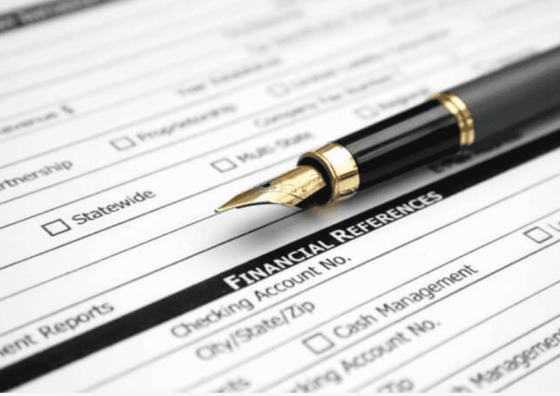As inflation keeps rising, 54% of Americans are worried their income can’t keep up with the prices, and one of the consequences could be that their accounts have turned delinquent. On the other hand, delinquency rates were as low as 1.20%.
So, what is delinquency, and can it harm you if you have such an account? If you do, how can you get rid of it, or avoid it completely?
We’ll guide you right through the process.
What Is a Delinquent Account?
This is an account that has been overdue or behind on payments. If you’re delinquent on any of your accounts, it will cost you in more ways than one. Not only will you be charged late fees, but your credit score will also take a hit.
For example, some borrowers could see their credit score drop from a competitive 740 points to a merely acceptable 660, depending on the terms of their credit card. They may also be charged additional fees if they become delinquent on their payments.
A bad credit score and payment history could make it more difficult to be approved for loans in the future.
The Effects of Delinquencies on Your Credit
There are several stages of delinquency that could show up on your credit reports. A debt is reported as delinquent after 30, 60, 90, or 120 days. Your credit score could drop a whopping 125 points if you have more than one delinquency on your credit report.
On that note, your credit card issuer or lender could take the following actions:
- Day 1: Charge a late fee.
- Day 30: If you’re late on a second payment, the lender will report your account to the three major credit bureaus, and you’ll be charged another late fee.
- Day 60: Your APR will go up on future purchases. You’ll also be charged late fees, and you’ll get reported to the credit bureaus for being 60 days late.
- Day 90: If your delinquency status remains unchanged after 90 days, lenders will close your account, charge you another late fee, and report this to the credit bureaus.
- Day 120-180: The lender may charge off the account, sell or transfer it to a collections agency, add more late fees, and report you to credit bureaus.
On-time payments have a significant impact on your credit score. Namely, 35% of your overall score is determined by your payment history. In other words, if you have a delinquent account, your score will drop significantly, especially if the debt is more than 30 days old.
Not only does a delinquency stay on your credit report for seven years, but even if you bring the account back to good standing or settle the account, the late payment will still show up on your credit history.
Some examples of delinquent debt are outstanding balances on installment contracts, auto loans, and real estate loans. Additional examples include student loans, bad checks, credit card charge-offs, and medical receivables.
How to Check Your Credit Report for Delinquencies
To determine if you have any delinquencies, review the payment history for all accounts associated with your name on your credit report.
Accounts that reflect late payments will be listed first on your credit report, and they’ll appear in red. Next to it, you’ll see how many days past the due date the payment is (30, 60, 90, or 120+).
If you want to know more about your delinquent debt, look at your billing statement or reach out to the creditor that reported it. Moreover, you should be able to establish why the bill was delinquent and confirm that the creditor reported it correctly.
What If There’s a Mistake?
Suppose you find errors on your credit report. In that case, you can submit a dispute with any of the three major credit reporting agencies — Experian, Equifax, or TransUnion — via whatever channel suits you best (online, by phone, or through email).
If you believe you don’t have any delinquent accounts and that your creditor has reported inaccurate information, reach out to them and request an investigation. If they find their reporting incorrect, they will immediately contact the credit bureaus to delete the false information.
How to Remove Delinquency From Your Credit Reports
One of the most intimidating obstacles for anyone striving to improve their credit score is ridding themselves of account delinquencies. Here are a couple of steps you can take to face the music and get rid of delinquency.
Pay Your Debt
The most obvious way to get a delinquent loan removed from your credit report is to pay the debt in full. Once you do, the lender will likely update the status of the loan to “paid” or “current,” and they will remove the delinquency from your credit reports.
Dispute It with the Credit Bureau
If you believe your account is incorrectly marked as delinquent, you can file a dispute with Experian, Equifax, and TransUnion. You’re entitled to one free credit report per year from each bureau.
You can dispute your credit report by email, online, or over the phone. No matter which method you go with, be sure to include a copy of the report and a letter or note pointing out the error.
Once you dispute the credit delinquency with a credit bureau, they will investigate your claim and get back to you within 30 days. A credit bureau’s investigation can result in three possible scenarios — they can verify, update, or remove the delinquency from your credit report.
Negotiate for Early Removal
Some credit card companies will allow you to negotiate for early removal of the delinquency from your credit report. You can try to negotiate with your credit card companies yourself, or you can seek help from a professional debt settlement company.
However, if you choose this route, you will most likely have to pay the rest of the balance or a majority of it right away.
How to Avoid Delinquency
To avoid having a delinquent account on your credit report, you can do the following:
Consolidate Your Debts
One way to handle debts from multiple accounts is to consolidate them. This will roll all your debts into one monthly payment instead of several payments at different times throughout the month.
Talk to Your Lender About Hardship Options
If you encounter an unexpected expense, such as job loss, contact your lender to discuss your options as soon as you realize that you will be unable to make a payment. Tell them about your situation and ask about different payment options that might be available, such as hardship loans.
Use Your Emergency Savings Account
If you have a delinquent credit card, you can try to pay it off using your emergency savings account. Only use your emergency savings if you absolutely have to, and make sure to resupply the funds and re-evaluate your budget so that it doesn’t happen again in the future.
Look Into a Debt Relief Company
If you’ve tried everything and are still struggling, it may be time to turn to a debt relief company. These companies specialize in negotiating with creditors to try and help you pay off your debt without declaring bankruptcy.
However, you will have to pay for these companies’ services. Some of them might not be entirely truthful in their advertisements, especially those that claim they can get rid of all your debt instantly.
Conclusion
So, what is delinquent debt? It is simply a debt that you have failed to pay on time. This can be anything from a credit card bill to a student loan.
That said, delinquencies will appear on your credit report and can stay there for up to seven years, damaging your credit score and making it more difficult to get approved for new loans or lines of credit.
There are many ways to handle delinquency on your credit report, including paying off your debt, disputing it with the credit bureau, or negotiating for early removal.
No, it’s not. Although both terms, “delinquent” and “default,” refer to late payments, a loan is only delinquent when you make a payment past the due date or miss an installment payment. On the other hand, a loan defaults when the borrower doesn’t make ongoing payments or repay the loan per the terms set in their promissory note agreement, and is required to repay the loan in full. On that note, loan default is more serious because it can impact your borrowing relationship with lenders and other creditors, and it has a more significant impact on your credit score. Delinquency can stay on your credit reports for up to seven years. The account is updated to reflect that it has been paid, and the delinquent status is removed. Additionally, erasing your debt might improve your credit score, depending on the scoring model being used. For example, if you’ve paid off the debt but still have a low credit score, it may be because you’re using an older scoring model like FICO 8. With newer models like FICO 9, paid-off debts are ignored.FAQs
Is a delinquent account as bad as a default?
How long does it take to clear a delinquency?
What happens when you pay off a delinquent account?






